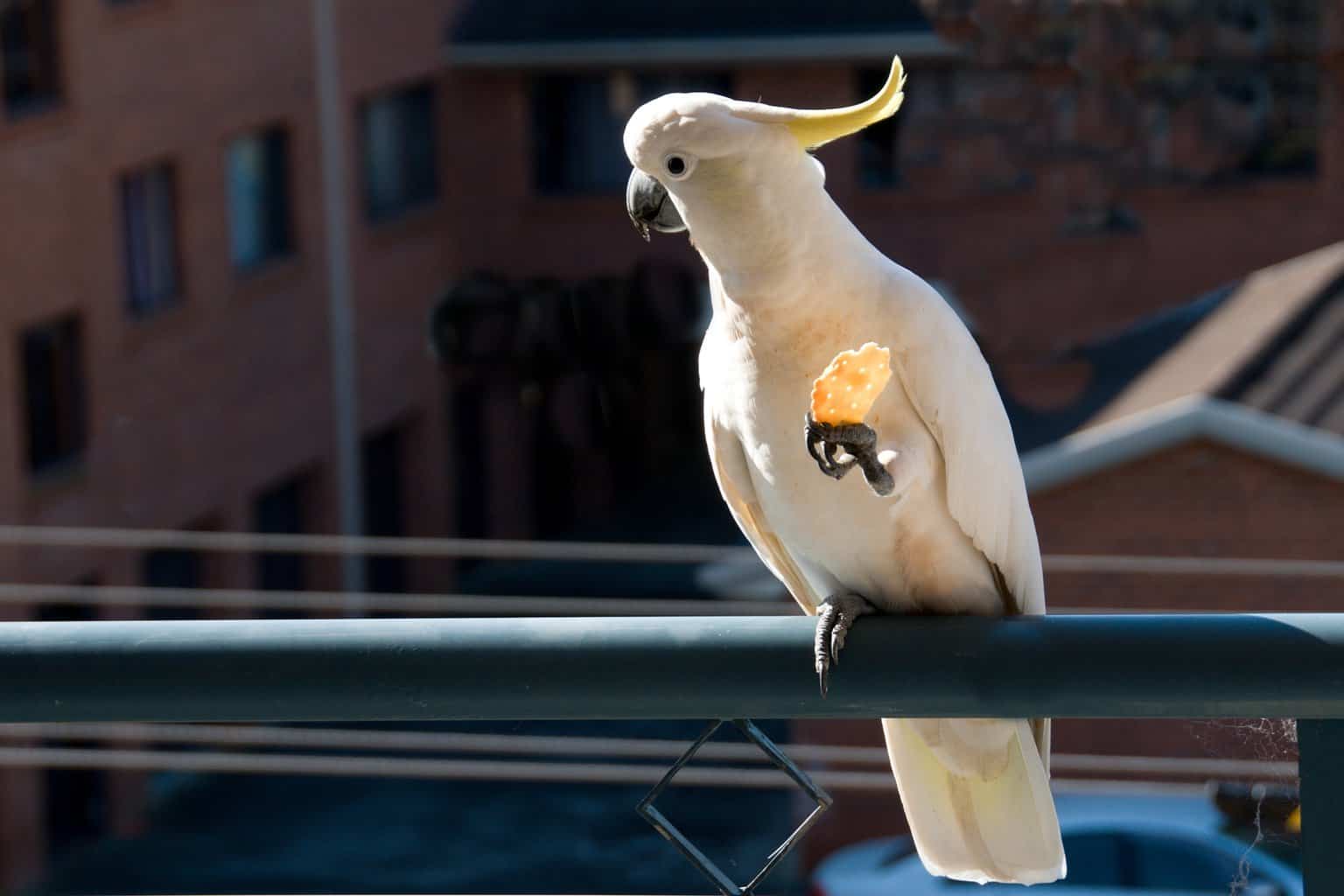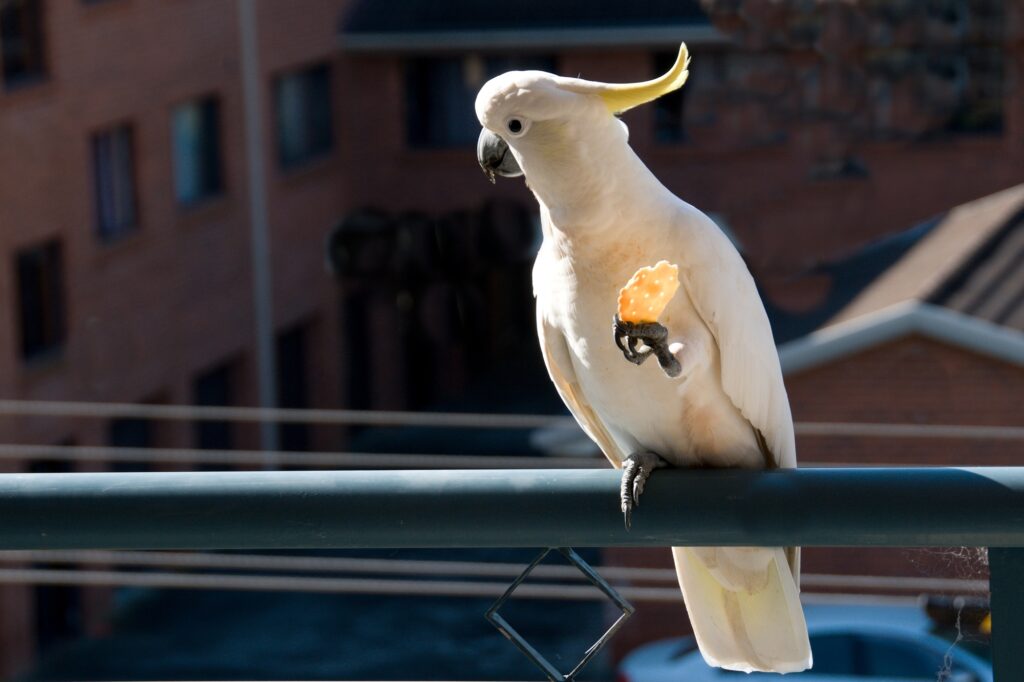Anyone who has ever been birdwatching can tell you that, once you start, it’s hard to stop. The next thing you know, you’re spending hours scanning the trees and bushes for that one elusive avian creature.
Many backyard birders have taken to feeding wild birds, and there are a variety of foods you can offer them. But can birds eat crackers?
The answer is yes, but with a few caveats. Although a pantry staple, crackers are not nutritious for birds, so they should only be given as a very occasional treat.
In addition, saltine crackers can be particularly harmful to birds, as they contain large amounts of salt. If you do give your bird crackers, make sure they are unsalted.
Are Crackers Safe for Birds To Eat?
While crackers are not particularly nutritious for birds, they are not poisonous and can be given as an occasional tasty snack. Crackers are highly processed and offer little nutritional value, so if fed in large quantities, they could lead to malnutrition.
So, while crackers may entice a few backyard birds to your home, it is not a suitable food source for the long term. Instead, focus on offering bird-friendly foods, such as fresh fruits and vegetables, nuts, nectar, and seeds.
Common Crackers and Their Safety for Birds
There are many different types of crackers on the market, and not all of them are safe for birds. Here is a list of common crackers and their safety for our feathered friends:
- Graham Crackers: These crackers are made with whole wheat flour, so they are not as processed as other crackers on this list. However, they still lack the nutritional value that birds need and should only be given as an occasional treat.
- Ritz Crackers: These crackers are made with white flour and are very high in sodium. They should not be given to birds as they can be harmful to their health.
- Saltine Crackers: Saltine crackers are made with white flour and baking soda. They are extremely high in sodium and should not be given to birds.
- Goldfish Crackers: Goldfish crackers are made with white flour, so they lack the nutritional value that birds need. They should only be given as an occasional treat.
- Prawn Crackers: Prawn crackers are made with shrimp and fishmeal. They are not safe for birds to eat as they could contain harmful bacteria.
- Cream Crackers: Cream crackers are made with white flour and vegetable oil. They are not particularly nutritious for birds and should only be given as an occasional treat.
Crackers Are High in Salt
One of the main concerns with feeding crackers to birds is the high salt content. A level of sodium is essential for wild birds, as it is with other living creatures, but too much salt can be harmful to their health.
When choosing crackers for your bird, avoid those that are high in sodium, such as saltine and Ritz crackers.
Polyuria
High sodium levels can lead to a condition called polyuria, which is characterized by excessive urination. In birds, this can lead to dehydration and death.
Electrolyte Imbalance
Another concern with high dietary sodium for birds is the potential for an electrolyte imbalance. This can occur when there is an imbalance of sodium and potassium in the body. When this happens, it can lead to serious health problems, such as heart arrhythmias and seizures.
No Nutritional Value
Another concern with feeding crackers to backyard birds is that they offer no nutritional value. Crackers tend to be made with white flour, which is a simple carbohydrate.
This means that they are quickly metabolized and offer little in the way of nutrients. In addition, crackers are high in calories and can lead to obesity if fed in large quantities.
Empty Calories
Because crackers are high in calories and offer little in the way of nutrients, they are often referred to as “empty calories.” This means that they provide energy but no other nutritional benefits.
Birds that eat a lot of empty calories will not have the appetite for more nutritious foods, which can lead to malnutrition.
Lacking in Natural Nutrients
In addition to being low in nutrients, crackers are also lacking in natural antioxidants and vitamins. Birds need these important nutrients for good health, and crackers simply don’t provide them.
A Cause of Dehydration
Birds that eat a lot of crackers may also have problems with dehydration, as crackers can absorb water from the digestive tract. If you do feed your local birds some crackers, make sure to offer plenty of fresh water.
Dehydration can lead to serious health problems, such as kidney failure, so it’s important to make sure your feathered friends stay hydrated, particularly in the summer months.
What Crackers Can Birds Eat?

If you’re looking for a healthier option for your feathered friends, try making your own crackers at home. This way, you can control the ingredients and make sure they are nutritious.
There are many recipes available online, including adapting our suet recipes, or you could even experiment and come up with your own. Just be sure to avoid adding any extra salt, as this can be harmful to birds.
Nutritious ingredients that can be added to homemade crackers include:
- Oats
- Bran
- Wheat germ
- Ground nuts
- Sesame seeds
- Sunflower seeds
Use a natural binder such as limited-ingredient peanut butter, lard, or honey, and bake the crackers at a low temperature to preserve the nutrients.
If you must give your bird store-bought crackers, focus on those that are made with whole grains and are lower in salt. These include:
- Triscuits
- Wheat Thins
- Rye crisps
- Oatcakes
Wrapping Up
So, it turns out Polly doesn’t want a cracker after all!
While crackers can be given to birds on occasion, they should not be a mainstay of their diet. Crackers are high in salt and calories and offer little in the way of nutrients. They can also cause dehydration and electrolyte imbalance.
If you do give birds crackers, make sure to offer plenty of fresh water and focus on those that are made with whole grains and are lower in salt.
You could also try making your own crackers at home, using healthy ingredients like oats, bran, and ground nuts.

